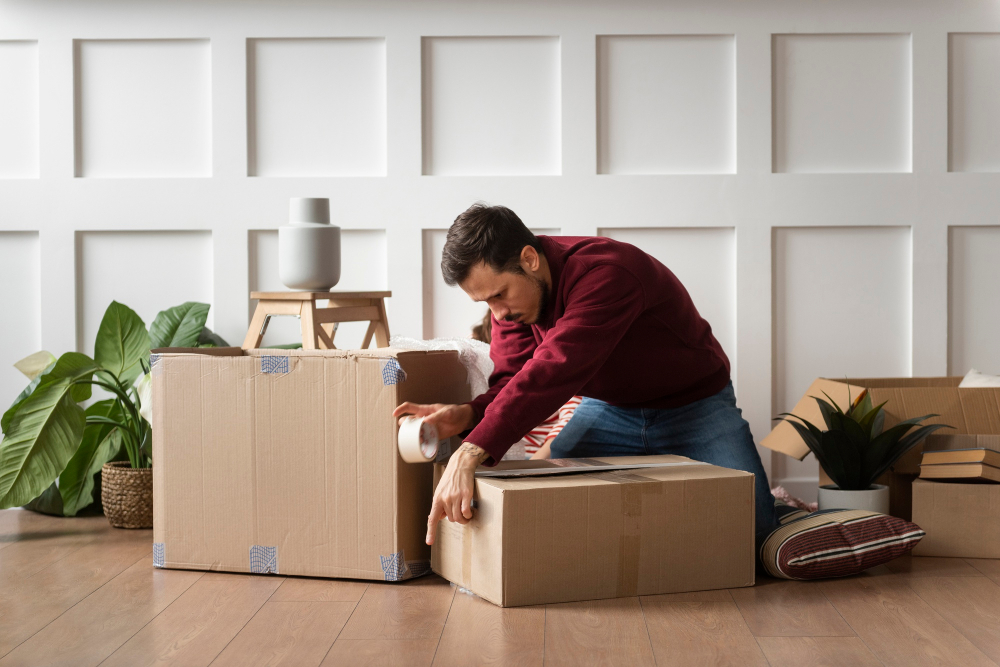Welcome to our guide on creating clutter free living spaces! If you find yourself constantly battling with clutter and a lack of organization in your home, you’re not alone. However, with the right mindset and strategies, you can transform your living spaces into tidy and organized sanctuaries. In this article, we will provide you with practical tips and techniques to help you achieve a clutter-free home that promotes tranquility and efficient living.
Key Takeaways:
- Believe that creating a clutter free living space is possible.
- Remove the excess possessions that contribute to clutter.
- Implement habits to manage clutter on a daily basis.
- Slow down the accumulation of possessions through mindful consumption.
- Partner with a professional home cleaning service for added support.
Believe it is possible
In order to create a clutter-free living space, it is essential to believe that it is possible. Many individuals find themselves overwhelmed by the clutter in their homes and may have given up hope of ever achieving a tidier living environment. However, it is important to resolve and make a conscious effort to initiate change. By taking small steps towards decluttering and organizing, you can cultivate a clutter free mindset and set yourself on the path to a more organized and serene home.
Embracing minimalism and the concept of clutter free living is a mindset shift that requires belief and determination. It is the understanding that a space free from unnecessary possessions and excess belongings can promote peace, productivity, and a sense of well-being. By creating a harmonious environment, you allow room for what truly matters and eliminate the distractions and stress that clutter brings.
“The first step towards a clutter free home is believing that it is possible. Once you adopt a clutter free mindset, you will begin to see the potential and clarity that comes with an organized living space.” – Marie Kondo
Organizing Tips for a Clutter-Free Mindset
- Start small: Begin with a small area or a single category of belongings to declutter. This approach helps build confidence and motivation as you witness the positive impact of decluttering.
- Set achievable goals: Break down your decluttering process into manageable goals. By focusing on one area at a time, you can make steady progress towards achieving a clutter free home.
- Practice gratitude: Cultivate a mindset of gratitude and appreciation for the items you decide to keep. This mindset shift can help you let go of items that no longer serve a purpose in your life.
- Stay organized: Implement organizing systems and storage solutions that suit your lifestyle and preferences. Having designated spaces for belongings makes it easier to maintain a clutter-free environment in the long run.
Creating a clutter-free mindset is the first step towards transforming your home into an organized haven. By believing in the possibility of living with less, you free yourself from the burden of excess possessions and create space for what truly matters. Embrace minimalism, follow these organizing tips, and embark on a journey towards a clutter-free living space that brings you joy and tranquility.
Remove the Excess
One of the key steps to maintain a clutter-free living space is to remove the excess possessions that are contributing to the clutter. Decluttering different areas of your home, such as junk drawers, closets, decorations, and sentimental items, is essential. By defining clutter and gradually removing items that fit this definition, you can create more space and reduce the overall clutter in your home.
Start by tackling one area at a time. Set aside dedicated time to go through your belongings and make decisions on what to keep, donate, or discard. As you declutter, ask yourself if each item serves a purpose or brings you joy. If not, it may be time to let go.
“The more things you own, the more they own you.”
Organizing tips:
- Create separate piles for items to keep, donate, or discard.
- Sort through your belongings systematically, room by room.
- Consider the value and usefulness of each possession.
- Be mindful of sentimental items, keeping only those that truly hold significance.
Remember that the process of decluttering takes time and may be emotionally challenging. Be patient with yourself and celebrate the progress you make along the way.
Clutter Elimination Progress
| Area | Items Removed |
|---|---|
| Junk Drawer | 30 |
| Closet | 42 |
| Decorations | 18 |
| Sentimental Items | 10 |
By actively decluttering and removing excessive possessions, you create a more spacious and organized home environment. Embrace a minimalist lifestyle and enjoy the freedom that comes with owning only what you truly need and cherish.
Implement habits to manage clutter
Developing effective habits is essential for maintaining a clutter-free living space. By incorporating these organizing habits into your daily routine, you can ensure a tidy and efficient living environment.
1. Clean the kitchen after each meal
One of the most clutter-prone areas in any home is the kitchen. To prevent clutter from piling up, make it a habit to clean the kitchen right after each meal. Wash dishes, wipe countertops, and put away any utensils or appliances you used. This simple routine will keep your kitchen clean and organized throughout the day.
2. Put daily-use items back in their designated places
Another way to manage clutter is to ensure that daily-use items have a designated spot. Whether it’s your keys, wallet, or phone, make it a habit to always put them back in their designated place after use. This not only prevents clutter from accumulating but also saves you time searching for misplaced items.
3. Complete projects around the house
Unfinished projects can quickly turn into clutter. Make it a habit to complete projects around the house as soon as possible. Whether it’s a DIY project, repairs, or organizing a specific area, setting aside dedicated time to finish these tasks will keep your home clutter-free and efficient.
4. Create an evening routine
Before winding down for the day, establish a simple evening routine to tidy up your living spaces. This can include picking up any stray items, folding blankets, and fluffing pillows. By dedicating a few minutes each evening to decluttering, you’ll wake up to a clean and inviting space.
5. Identify specific clutter collection sites
Every home has certain areas where clutter tends to accumulate. It could be a hallway table, a countertop, or even a chair. Identify these clutter collection sites in your home and make it a habit to regularly declutter and organize these areas. By addressing these specific spots, you can prevent clutter from spreading to other areas of your home.
6. Focus on seasonal needs
As the seasons change, so do our needs and belongings. Make it a habit to review your possessions at the start of each season. Declutter items that are no longer needed or used, and organize the remaining items according to their seasonal relevance. This proactive approach will help you maintain an efficient and clutter-free living space throughout the year.
By implementing these organizing habits into your daily routine, you can effectively manage clutter and maintain a clutter-free living environment. These simple practices will not only save you time and energy but also contribute to a more efficient and enjoyable daily life.
Slow the accumulation of possessions

When it comes to creating a clutter-free living space, slowing the accumulation of possessions is a crucial step. By adopting a mindful consumption approach and embracing a minimalist mindset, you can prevent unnecessary clutter from infiltrating your home. Rather than making impulsive purchases, take the time to evaluate the necessity and impact of each item before adding it to your collection.
Ask yourself questions like:
Do I really need this?
Will this item enhance my life or bring me joy?
Is there a more sustainable or eco-friendly alternative available?
By consciously considering your purchases, you can make intentional choices that align with your minimalist goals and contribute to clutter prevention. Remember, it’s not about depriving yourself, but rather focusing on quality over quantity. Invest in items that serve a purpose and align with your values.
Following the “one-in, one-out” rule
An effective way to curb the accumulation of possessions is to adopt the “one-in, one-out” rule. For every new item you bring into your home, commit to removing one existing item. This practice ensures that your possessions remain balanced and prevents unnecessary clutter from building up over time.
By consciously choosing what items enter and exit your space, you cultivate a sense of intentionality and prevent clutter from taking over. Remember, each item should have its designated space in your home. Consider creating dedicated storage areas for commonly used items to keep them organized and prevent them from becoming clutter.
Visualizing your possessions and their designated spaces can help you maintain a clutter-free environment.
To summarize, slowing the accumulation of possessions requires adopting a mindful consumption approach, embracing a minimalist mindset, and making intentional purchases. By evaluating the necessity and impact of each item, following the “one-in, one-out” rule, and finding designated spaces for commonly used items, you can effectively prevent clutter and create a more organized living space.
Conclusion
Creating a clutter-free home is the key to achieving an organized and peaceful living environment. By adopting the right strategies and mindset, you can transform your living spaces into tranquil abodes that promote a sense of calm and enhance your overall quality of life.
Believing that a clutter-free home is possible is the first step towards achieving this goal. With determination and small steps, you can cultivate a clutter-free mindset and start making positive changes in your living space.
Removing the excess possessions that contribute to clutter is crucial in maintaining an organized home. Decluttering different areas of your house, such as junk drawers, closets, and sentimental items, will create more space and reduce overall clutter. Implementing habits to manage clutter, such as daily cleaning routines and designated spaces for commonly used items, will help you stay organized and prevent clutter from accumulating.
Additionally, slowing the accumulation of possessions through mindful consumption and intentional purchases is essential. Asking yourself critical questions about the necessity and impact of each purchase can help you make more conscious decisions and avoid unnecessary clutter.
Partnering with a professional home cleaning service like Homecare Solutions can provide additional support in achieving and maintaining a clutter-free home. Their expertise in decluttering and organizing can help you streamline your living spaces and ensure a clutter-free environment.
Remember, a clutter-free home promotes a sense of calm and fosters organized living. Embrace the journey of decluttering and enjoy the benefits of an organized and peaceful home.
Frequently Asked Questions
How can I create a clutter free living space?
Creating a clutter-free living space is possible by believing it is possible, removing the excess, implementing habits to manage clutter, and slowing the accumulation of possessions.
How can I believe it is possible to have a clutter free living space?
You can cultivate a clutter-free mindset and start on the path to a tidier home by resolving to make a change and taking small steps towards decluttering.
What can I do to remove the excess possessions that contribute to clutter?
Declutter different areas of your home, such as junk drawers, closets, decorations, and sentimental items. Define clutter and gradually remove items that fit this definition to create more space and reduce overall clutter.
How can I develop habits to manage clutter?
Develop habits such as cleaning the kitchen after each meal, putting daily-use items back in their designated places, completing projects around the house, and creating an evening routine. Also, identify clutter collection sites and focus on seasonal needs to stay organized and prevent clutter accumulation.
How can I slow the accumulation of possessions?
Change your mindset and evaluate your purchases more critically. Ask yourself questions about necessity and impact before making a purchase. Follow the “one-in, one-out” rule and find designated spaces for commonly used items to prevent excessive accumulation of possessions.
How can a clutter-free home enhance the overall quality of life?
A clutter-free home promotes a sense of calm and tranquility, creating an environment that fosters relaxation and efficient living. For additional support in achieving and maintaining a clutter-free home, consider partnering with a professional home cleaning service, like Homecare Solutions.












